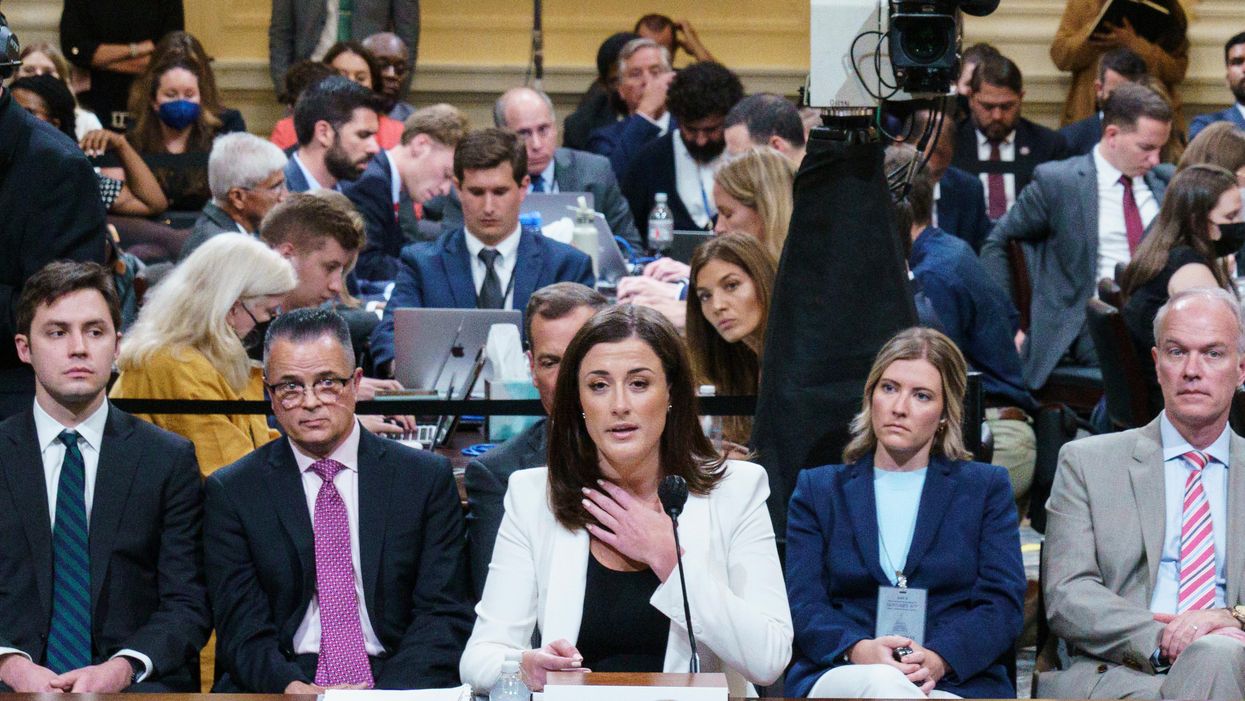Molineaux is co-publisher of The Fulcrum and president/CEO of the Bridge Alliance Education Fund.
I was recently introduced to a poem that reminded me of the bravery of those testifying before the Jan 6 select committee. As Rep. Liz Cheney pointed out, especially the women. Here’s the poem:
“Courage is the measure of our heartfelt participation with life, with another, with a community, a work, a future. To be courageous, is not necessarily to go anywhere or do anything except to make conscious those things we already feel deeply and then to live through the unending vulnerabilities of those consequences.” -David Whyte
My work to improve our nation feels this way to me. As a nation, we are at a crossroads. We can continue to improve our nation. Or we can give in and give up. Will we have the courage to correct our course?
Most people think the government is something other people do. It’s not personal to most Americans – therefore they have no heartfelt participation in it. And yet, as a nation, we are terribly vulnerable to the forces of division and authoritarians.
Normally we talk about courage as acting despite our fear. This observation about courage being the conscious recognition of our vulnerability, and living with the consequences, seems more personal. In this era of likely or probable political violence, stepping forward to take a stand, to protect our institutions, to call out our institutions, etc. is an act of courage. Think of the courage required for those in the former administration to testify publicly, under oath. Without exception, they’ve recognized and accepted their vulnerability and will live with the consequences for the sake of our nation. For the sake of all of us.
If the local and federal government represents the collective of us and our social contract, what do the actions of our municipal bodies, state legislatures and Congress say about who we are? At best, our governance shows how dysfunctional we are – stuck in a bad marriage and unable to divorce. At worst, it shows a cruel heart that disparages those who need help, because they are not self-reliant.
As in previous generations, our societal turmoil is a symptom of an underlying disease that develops from a broken social contract. We’ve witnessed hypocrisy, corruption and the resulting nihilism has made us selfish; each wanting our own way, regardless of the harm caused to others. Fueled by disinformation, grifters and wannabe kings, many among us believe that turning to authoritarians, theocracy or fascism will keep the world as it was. It won’t.
As of today, we still are a functioning democracy. We can still elect pro-democracy candidates to represent us. Or we can elect authoritarians who will strip away the protections of democracy, one by one.
If we elect authoritarians, we will follow a predictive pattern. Protections will first be removed from those who are “othered” by the ruling class. And as each successive protection is removed, power is concentrated within a smaller and smaller group of people – the privileged. Until they are not. Is this the future we want? Either we are all free, or none of us are free.
Change is our only guarantee. And if we can collectively decide what we want our future to be, we can then plan to make it so. I want a free and open society for my future. For that future, I’m choosing to fully participate in its co-creation. Like those before me, I’ll speak truth to power. I’ll work the election. I’ll engage with people different from myself and recognize our common humanity. I’ll vote for pro-democracy candidates. How will you measure your courage?
What do you want? And what will you do to get it?




















Trump & Hegseth gave Mark Kelly a huge 2028 gift